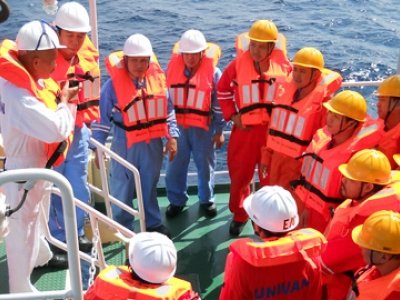Working at sea is more than just a job; it’s a way of life. Maritime workers play a crucial role in global trade and commerce, yet their rights and well-being are often overlooked. In this article, we’ll delve into the rights of maritime workers, exploring their historical origins, current regulatory frameworks, and the challenges they face in today’s maritime industry.
1. Introduction
Maritime workers are the backbone of the shipping industry, responsible for transporting goods across the world’s oceans. However, their contributions are often overshadowed by the challenges they face at sea. From dangerous working conditions to long hours away from home, maritime workers deserve recognition and protection of their rights.
2. Historical Context
The rights of maritime workers have evolved over centuries, reflecting changes in labor practices, technological advancements, and international trade. From the early days of sail-powered vessels to the modern era of container ships and oil tankers, the struggle for fair treatment and just compensation has been a constant theme in maritime history.
3. Key Rights of Maritime Workers
Maritime workers are entitled to a range of rights aimed at ensuring their safety, well-being, and fair treatment. Among these rights are the right to safe working conditions, the right to fair wages and benefits, and the right to health care and medical assistance.
4. International Regulations
To protect the rights of maritime workers on a global scale, international organizations such as the International Labour Organization (ILO) have developed conventions and standards governing labor practices at sea. One of the most significant of these is the Maritime Labour Convention (MLC), which sets out minimum requirements for seafarers’ working and living conditions.
5. National Legislation
In addition to international regulations, many countries have their own laws and regulations protecting the rights of maritime workers. These may include provisions for minimum wages, maximum working hours, and safety standards specific to the maritime industry.
6. Challenges Faced by Maritime Workers
Despite the existence of regulatory frameworks, maritime workers continue to face numerous challenges, including safety concerns, unfair labor practices, and limited access to legal recourse. Working at sea can be inherently risky, with hazards ranging from rough weather and heavy machinery to piracy and maritime accidents.
7. Role of Unions and Advocacy Groups
To address these challenges, maritime workers often rely on unions and advocacy groups to represent their interests and negotiate better working conditions. Through collective bargaining and advocacy campaigns, these organizations seek to improve safety standards, protect workers’ rights, and ensure fair treatment for all maritime employees.
8. Recent Developments
Recent years have seen significant developments in the rights of maritime workers, driven by technological advancements, legal reforms, and shifting societal norms. From the adoption of digital technologies to streamline administrative processes to the introduction of new legislation aimed at enhancing seafarers’ rights, the maritime industry is undergoing a period of rapid change.
9. Conclusion
In conclusion, the rights of maritime workers are fundamental to the functioning of the global shipping industry. By ensuring safe working conditions, fair wages, and access to essential services, we can support the men and women who keep our world moving.
FAQs:
1. What are some common safety concerns for maritime workers? Safety concerns for maritime workers may include accidents, injuries, exposure to hazardous materials, and the risk of piracy or attacks at sea.
2. How are wages determined for maritime workers? Wages for maritime workers may be determined by factors such as rank, experience, type of vessel, and prevailing market conditions.
3. Are there any specific health care services available to maritime workers? Many countries require vessels to provide onboard medical facilities and access to medical professionals to ensure the health and well-being of maritime workers.
4. How do unions advocate for the rights of maritime workers? Unions advocate for the rights of maritime workers through collective bargaining, lobbying for legislative reforms, and raising awareness of issues affecting the industry.
5. What role do governments play in protecting the rights of maritime workers? Governments play a crucial role in enacting and enforcing laws and regulations to protect the rights of maritime workers, including ensuring compliance with international standards and providing access to legal recourse.


